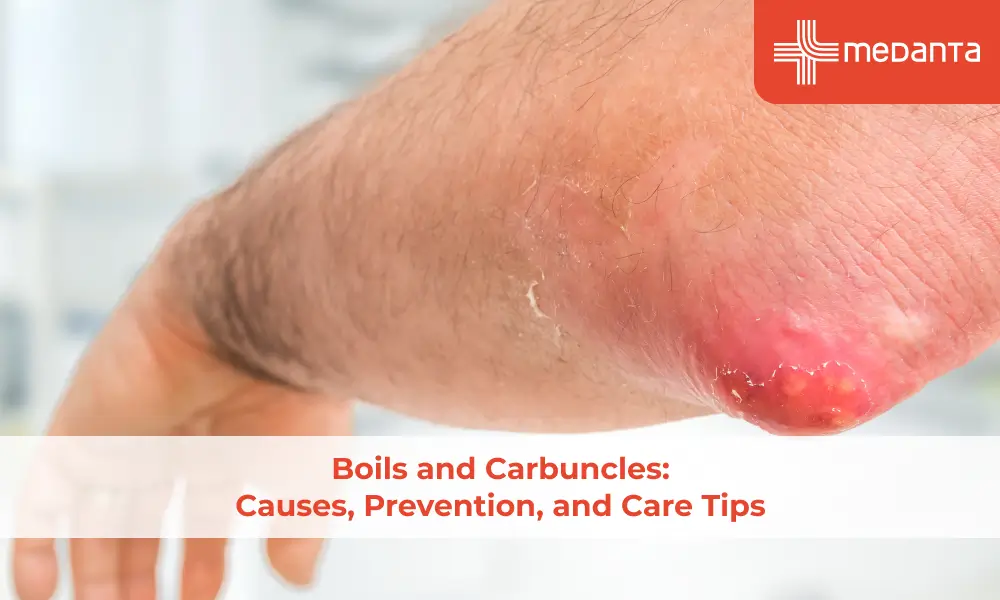Stroke Prevention: A Critical Strategy to Safeguard Your Brain’s Health

Your brain serves as your body’s control centre, responsible for everything from basic survival functions to complex thoughts and emotions. Therefore, protecting your brain’s health is crucial for maintaining the quality of your life. However, stroke poses a significant threat to your brain’s health. It can cause a range of cognitive and physical impairments, making stroke prevention a vital aspect of healthcare.
So, what can be done to prevent stroke? Age and family history of stroke are two factors that usually make a person susceptible to stroke. Although it’s not possible to reverse the years or change your family history, you can still control many other stroke risk factors.
Let’s read further to learn what steps can be taken to reduce your risk of having a stroke.
What is Stroke?
Before learning the preventive measures, let’s first understand what stroke is and how it can be caused.
A stroke is a medical emergency that occurs when the flow of blood to a part of your brain is blocked or a blood vessel within your brain bursts. Due to this interruption in blood flow, brain cells fail to receive enough oxygen and nutrients, leading to the rapid death of brain tissue and deteriorating brain health.
Strokes are classified into two primary categories:
Ischemic strokes are caused when a blood clot or plaque buildup narrows or blocks an artery responsible for supplying blood to your brain.
Hemorrhagic strokes are caused when bleeding occurs into or around your brain due to leaked or bursting blood vessels in the brain.
7 Strategies to Prevent Stroke
Keeping an eye on critical health aspects, from blood pressure to weight and diabetes, along with seeing to it what you eat, can help you maintain optimal brain health and reduce your stroke risk. In this section, we have outlined eight effective stroke prevention strategies:
Lower Your Blood Pressure
High blood pressure is the leading factor that doubles or even quadruples your risk of having a stroke if not controlled. It can damage blood vessels in your brain, making them more susceptible to clots or rupture.
Monitoring your blood pressure and maintaining it in the normal range can make the biggest difference to your vascular health. Your aim should be to keep your blood pressure below 120/80 mmHg by reducing salt intake, eating a balanced diet, exercising regularly, and taking prescribed medications.
Maintain a Healthy Weight
Being overweight or obese and associated complications like diabetes or high blood pressure can make you vulnerable to stroke. If you carry too much weight, losing as little as 10 pounds can go a long way in reducing your stroke risk.
So, try to shed excess fat and maintain a healthy weight by keeping count of your calorie intake and engaging in physical activities, from walking to running or swimming.
Exercise More
Regular physical activity not only contributes to losing weight but also helps lower your blood pressure and improve overall cardiovascular health- all of which lowers your odds of having a stroke.
You should exercise at a moderate intensity for 5-6 days a week. Consider starting by taking a walk every morning, taking stairs instead of elevators, or hitting the gym for at least 30 minutes.
Treat Atrial Fibrillation
Atrial fibrillation is a form of irregular heartbeat that can cause blood clots to form in your heart. These blood clots can then travel to your brain and produce a stroke. If you have been diagnosed with atrial fibrillation, you should get it treated to avoid experiencing stroke symptoms. Your doctor might prescribe anticoagulant drugs (blood thinners) to lower your risk of stroke from atrial fibrillation.
Treat Diabetes
Diabetes increases the risk of stroke by damaging your blood vessels over time, causing clots to form inside them. Your another solution to prevent stroke is keeping your blood sugar levels under control through diet, exercise, and medication.
Drink in Moderation
Do you drink? Consuming a little alcohol, like an average of one drink per day, is fine. However, once you start drinking more than that, your risk of having a stroke can increase. So, either don’t drink alcohol or have it in moderation.
Quit Smoking
Smoking accelerates the formation of clots by thickening your blood and increasing the amount of plaque buildup in your arteries. Quitting smoking is one of the most effective lifestyle changes you can incorporate to reduce your risk of stroke significantly.
Preventing Stroke: Foods to Boost Your Brain Health
Other than the above-discussed stroke prevention strategies, you should also take care of your diet. Having the following brain boosting foods can improve blood circulation, reduce inflammation, and thus, significantly lower your odds of having a stroke:
Leafy Greens | High in brain-supporting vitamins and minerals, spinach, kale, and other leafy greens can help protect you against stroke.
Fatty Fish | Salmon, mackerel, and sardines contain omega-3 fatty acids, which can help reduce inflammation and improve your brain function.
Whole Grains | Brown rice, oatmeal, and whole wheat bread provide fibre and nutrients that are key to maintaining healthy blood pressure levels and reducing your stroke risk.
Berries | Rich in antioxidants, blueberries, strawberries, and other berries can reduce oxidative stress and inflammation in your brain.
Nuts and Seeds | Almonds, walnuts, flaxseeds, and chia seeds provide essential fatty acids that can support your brain health.
Importance of Early Intervention: Recognising Symptoms and Undergoing Diagnosis
Do you experience the following stroke symptoms?
Sudden numbness or weakness in your face, leg, or arm
Confusion
Trouble speaking or understanding speech
Vision problems, dizziness, or loss of balance
Severe headache
If so, recognising and acting on them quickly can help you minimise brain damage and even prevent stroke. Seeking immediate medical help will involve diagnosis, from physical examination and brain tests to blood and stroke tests. And if the result states having a stroke, you will be suggested an appropriate treatment.
Final Thoughts
Stroke prevention is an ongoing process that requires several healthy lifestyle changes to manage risk factors and early medical intervention if experiencing any symptoms. Neurologists at Medanta can guide you about a healthy lifestyle, foods supporting your brain health, and diagnosis if needed.






